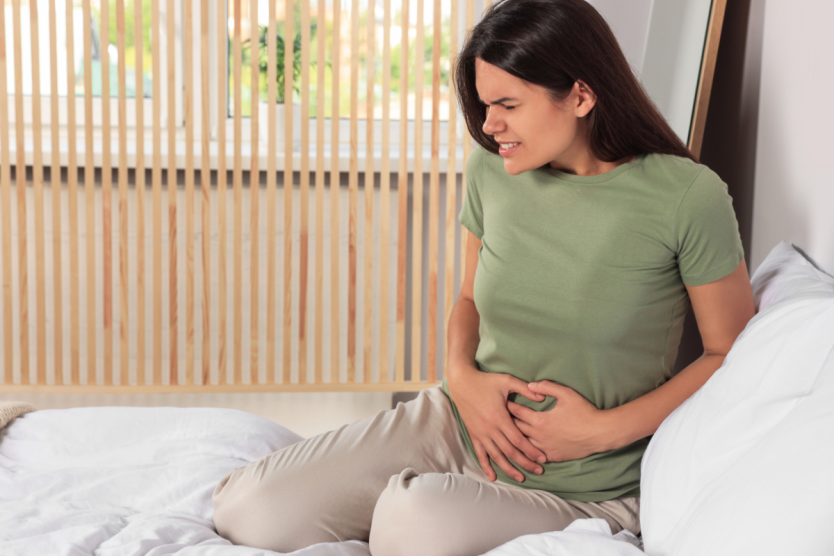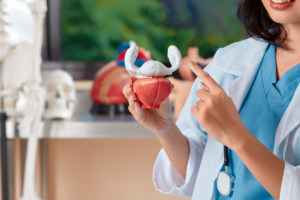Many of us experience the inconvenience of needing frequent trips to the bathroom.
Having to urinate often can cause you to limit your outings and restrict your social life. In some instances conditions like overactive bladder and urinary incontinence can lead to depression.1
But if this constant need to pee is ongoing, you should seek medical diagnosis, since it could be a sign of an underlying condition. Interstitial cystitis is one example of a bladder ailment that should be diagnosed by a doctor.
What is interstitial cystitis? Here are some answers to your questions about this condition.
Understanding Interstitial Cystitis
Interstitial cystitis (IC) is a disorder in which your bladder is overly sensitive, and the reason for this—typical markers such as an infection—cannot be found. The urgent need to urinate often, sometimes up to 60 times a day, is a major symptom. Another sign is pain in the pelvic area,2 so it’s also called bladder pain syndrome3 or painful bladder syndrome.4
This condition causes long-term pain or discomfort in your bladder and abdominal area. The exact cause is unknown, but healthcare providers speculate that causes may include autoimmune diseases, allergies and issues with your bladder lining.3
The bladder pain is described as chronic or long-term pain, pressure or discomfort. The frequent need to urinate and sudden urges to urinate typically last for at least six weeks.3
What Happens When You Have Interstitial Cystitis?
A healthy bladder expands with urine until it’s full, and then sends signals to your brain to let you know it’s time to urinate. This communication through the pelvic nerves creates an urge to urinate, sending you to the bathroom.4
But those signals get mixed up in people who have interstitial cystitis. It causes the feeling of needing to pee to arise more often and with smaller volumes of urine than most people. Interstitial cystitis most often affects women and can have a long-lasting impact on quality of life.4
Besides needing to pee often, it also causes pain in your pelvis, sometimes chronic pain, or pain between your vagina and anus.4 Women often find the symptoms get worse when you’re menstruating.3 There could be pain or discomfort while your bladder fills, followed by relief after peeing.4 You may only pee a small amount when you do go.3 And, it can cause pain during sex.4
The symptoms of IC or bladder pain syndrome can vary among people. They may be mild or severe and may be constant or only appear occasionally.3
What Causes Interstitial Cystitis?
As mentioned, the exact cause of IC is not known. However, there are some possible conditions that may result in IC:
- allergies2
- a vascular disease (affecting blood vessels)2
- an autoimmune disease2
- defects in the lining of the bladder wall2
- abnormalities in the mast cells—those that cause allergic symptoms 3
- the presence of abnormal substances in the urine2
- an unusual kind of infection that isn’t found with standard tests2
It is known that IC is most common in women, although it does occur in men and children. The National Kidney Foundation estimates that 700,000 to 1 million Americans currently suffer from the disease.2
One of the steps in diagnosing the condition is to rule out other possible ailments that can create similar symptoms. That includes a bladder infection or urinary tract infection (UTI); bladder cancer; systemic diseases such as diabetes; or, drugs and chemicals that may affect the bladder.2
Unfortunately, there is not currently a cure for IC; rather, treatments focus on relieving symptoms.3 It’s also been found that there isn’t a one-size-fits-all treatment plan.
Different patients respond to different medications, including an FDA-approved drug called Elmiron, or pertosan polysulfate sodium, which is believed to work by repairing a thin or damaged bladder lining. Other medications that have some success include antidepressants (to relieve pain), anti-inflammatory drugs, anti-spasmodics, antihistamines and muscle relaxants.2
Dietary changes may also help, as some people with IC report that certain foods and drinks worsen their symptoms. Noting what you eat and drink before the onset of symptoms or a flare-up of IC can help you learn what foods and drinks to avoid.3
See a Doctor
The first step in determining if you have Interstitial Cystitis is to see a doctor for diagnosis. Use our Physician Finder to find a doctor near you with expertise in women’s health to help with your concerns about pelvic pain and frequent urination.
















